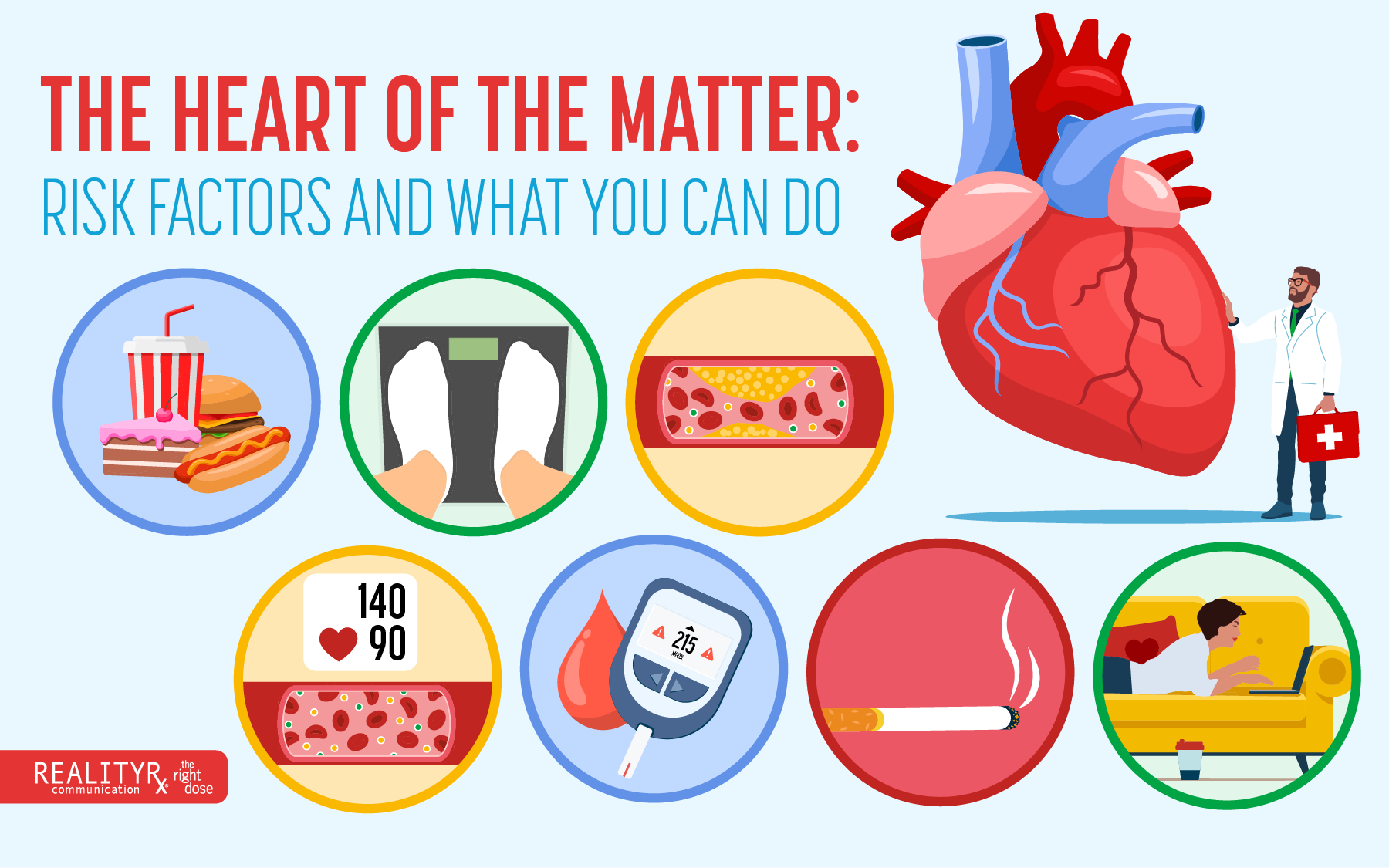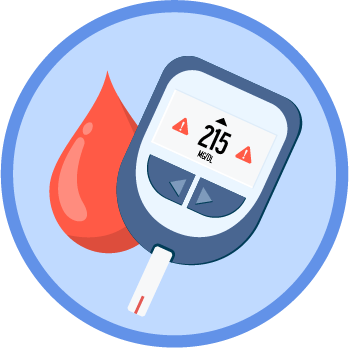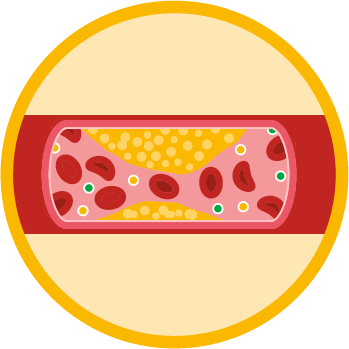February is not just for celebrating Black History and Valentines’ Day. The shortest month of the year is also known as “Heart Health Month.” We see it as an opportunity to take healthy steps to avoid cardiovascular problems. After all, heart disease remains the leading cause of death for both men and women in the United States.


High blood pressure
It’s called the “silent killer” because it’s silent, and it kills. Hypertension can damage vessels and raise the risk of heart attack, stroke, and heart failure. Regular blood pressure monitoring and lifestyle modifications, such as switching to a healthy diet, getting exercise, and managing stress can help keep your blood pressure healthy, which as you know, is 120/80.
Living with diabetes
Diabetes significantly increases the risk of developing heart disease. Managing blood sugar through diet, exercise, and medications is key to protecting your heart, if you have been diagnosed with diabetes.


Smoking tobacco products
Seriously? You don’t need to be told that smoking is a major risk factor for heart disease. It damages blood vessels, reducing oxygen to the heart, and increasing the risk of blood clots. If you’re smoking, the most meaningful step you can take to improve your heart health is quitting. Now.
Obesity
Excess weight, particularly around your abdomen, puts a strain on your heart and increases your heart disease risk. Maintaining healthy body weight through a modest diet and regular physical activity are vital for maintaining cardiovascular health.


Poor diet
Eating meals high in saturated and trans fats, sodium, and added sugars can increase the risk of heart disease. Invest in a heart-healthy meal plan, one rich in fruits, vegetables, whole grains, and lean protein sources.
High cholesterol levels
Elevated LDL can lead to plaque buildup in the arteries, blocking blood flow and increasing the risk of CV disease. A diet low in saturated and trans fats, plus regular exercise, and in some cases, daily medications, can all help lower cholesterol levels in your bloodstream.


Lack of exercise
Simply put, if you’re not exercising regularly, you’re putting your heart at risk. Regular physical activity strengthens the heart, improves blood circulation, and helps manage other risk factors. Every week, you should aim for at least 2 1/2 hours of moderate-intensity aerobic exercise or an hour and a half of vigorous-intensity aerobic exercise. As always, check with your doctor to find an exercise program that’s right for you.
Consider this post a call to action, your chance to assess your risk factors, make positive changes, and prioritize your cardiovascular health.
By taking proactive moves to protect the health of your heart, you can significantly reduce your risk of heart disease and may improve your overall quality of life.
Best of all, it’s never too late to start. For the remainder of this year’s Heart Health Month, be sure to show your heart some love—and encourage your loved ones to do the same!
If your brand team would like to hear about our agency’s unique process and learn how we instill a different reality into messaging, branding, and strategy, contact Jon or Hoon at RRx. Let’s talk.
February is not just for celebrating Black History and Valentines’ Day. The shortest month of the year is also known as “Heart Health Month.” We see it as an opportunity to take healthy steps to avoid cardiovascular problems. After all, heart disease remains the leading cause of death for both men and women in the United States.


High blood pressure
It’s called the “silent killer” because it’s silent, and it kills. Hypertension can damage vessels and raise the risk of heart attack, stroke, and heart failure. Regular blood pressure monitoring and lifestyle modifications, such as switching to a healthy diet, getting exercise, and managing stress can help keep your blood pressure healthy, which as you know, is 120/80.

Living with diabetes
Diabetes significantly increases the risk of developing heart disease. Managing blood sugar levels through diet, exercise, and medication is crucial for protecting the hearts of people with diabetes.

Smoking tobacco products
Seriously? You don’t need to be told that smoking is a major risk factor for heart disease. It damages blood vessels, reducing oxygen to the heart, and increasing the risk of blood clots. If you’re smoking, the most meaningful step you can take to improve your heart health is quitting. Now.

Poor diet
Eating meals high in saturated and trans fats, sodium, and added sugars can increase the risk of heart disease. Invest in a heart-healthy meal plan, one rich in fruits, vegetables, whole grains, and lean protein sources.

Obesity
Excess weight, particularly around your abdomen, puts a strain on your heart and increases your heart disease risk. Maintaining healthy body weight through a modest diet and regular physical activity are vital for maintaining cardiovascular health.

High cholesterol levels
Elevated LDL can lead to plaque buildup in the arteries, blocking blood flow and increasing the risk of CV disease. A diet low in saturated and trans fats, plus regular exercise, and in some cases, daily medications, can all help lower cholesterol levels in your bloodstream.

Lack of exercise
Simply put, if you’re not exercising regularly, you’re putting your heart at risk. Regular physical activity strengthens the heart, improves blood circulation, and helps manage other risk factors. Every week, you should aim for at least 2 1/2 hours of moderate-intensity aerobic exercise or an hour and a half of vigorous-intensity aerobic exercise. As always, check with your doctor to find an exercise program that’s right for you.
Consider this note a call to action, your chance to assess your risk factors, make positive changes, and prioritize your cardiovascular health.
By taking proactive moves to protect the health of your heart, you can significantly reduce your risk of heart disease and may even improve your overall quality of life.
Best of all, it’s never too late to start. For the remainder of this year’s Heart Health Month, be sure to show your heart some love—and encourage your loved ones to do the same!
If your brand team would like to hear about our agency’s unique process and learn how we instill a different reality into messaging, branding, and strategy, contact Jon or Hoon at RRx. Let’s talk.

